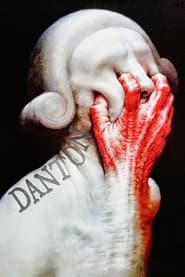Elements of the film are likely soaked in regional metaphor (particularly piquant was the decision to cast Frenchmen as Danton and his entourage whereas Robespierre and crew are played by Poles—necessitating abysmal dubbing), but explorations of the hardships of Poland’s Solidarity Movement are not always universally communicable or aesthetically gratifying. As with fellow countryman Krzysztof Kieślowski, Wajda’s auteurism is often enigmatically repellent to non-EU audiences.[…]
Historically speaking, it’s not certain whether Danton and Robespierre truly butted heads over sharp differences in political ideology—aside from the former’s weariness over the ubiquity of guillotined corpses. Danton’s success is that it interprets their schism as a matter of clashing personalities and individual aesthetics.
— Joseph Jon Lanthier (Slant Magazine)
Synopsis: Danton and Robespierre were close friends and fought together in the French Revolution, but by 1793 Robespierre was France's ruler, determined to wipe out opposition with a series of mass executions that became known as the Reign of Terror. Danton, well known as a spokesman of the people, had been living in relative solitude in the French countryside, but he returned to Paris to challenge Robespierre's violent rule and call for the people to demand their rights. Robespierre, however, could not accept such a challenge, even from a friend and colleague, and he blocked out a plan for the capture and execution of Danton and his allies.

